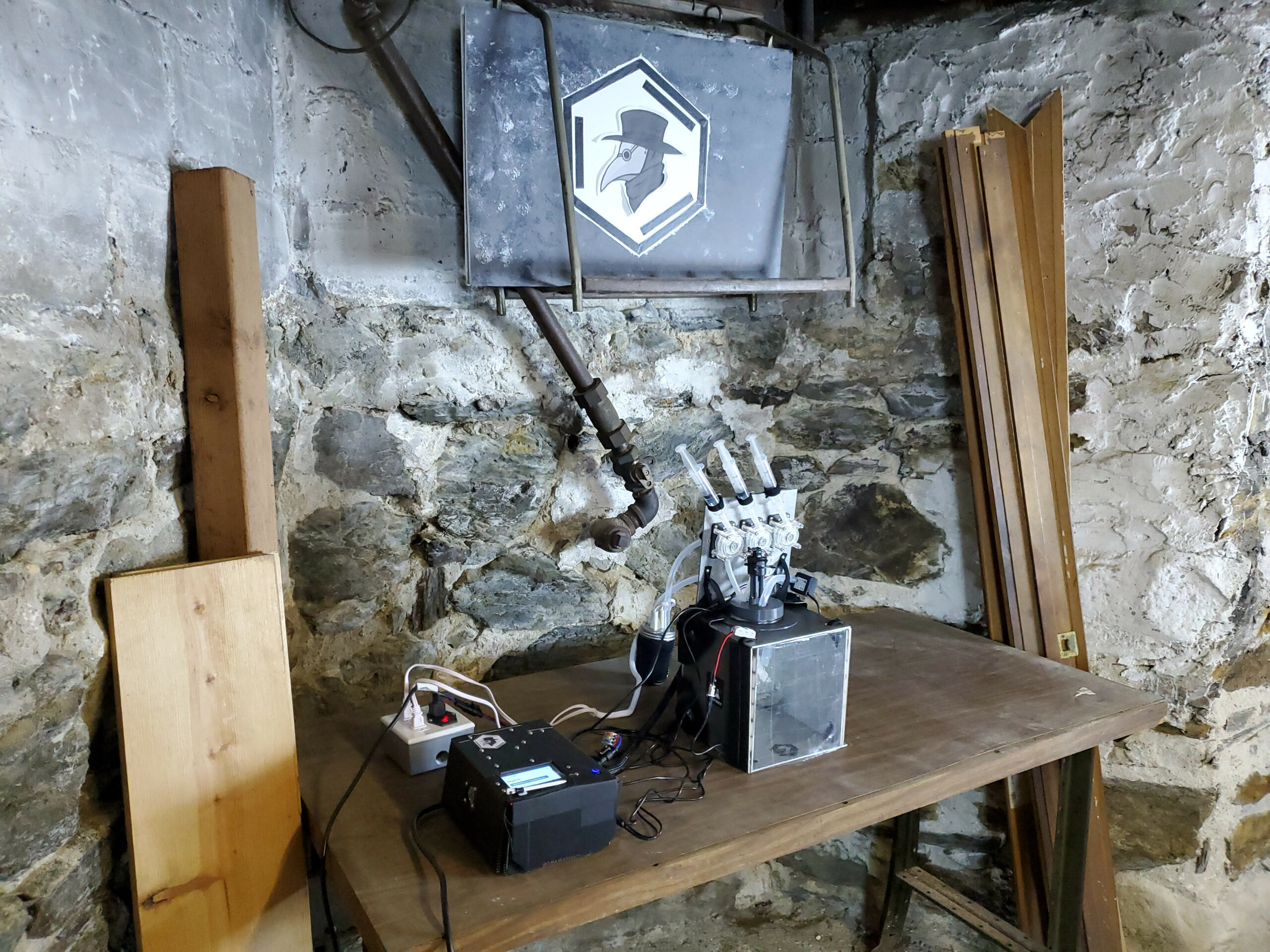2023 was quite a year for our flagship project
It’s been over 7 years since we first got attention for suggesting that regular folks might be able to make medicines for themselves. Reactions ranged from skeptical to sympathetic and the device that originally debuted as a sprawling thicket of tubes and wires is now a refined and well-documented open source project. We’re excited to share the latest updates with you!
But first, we need to acknowledge that none of this would have been possible without help from about a dozen dedicated developers, a clutch of clever cat-herders, a pack of posters posting, and a main branch in the git tree. Seasons greetings and happy 2024 to all our volunteers and supporters!
Where we are and where we’re headed
The Microlab has been through a several iterations since its initial prototype — but hey, who’s counting? Turns out we are. This latest version is the 5th big revision. One that takes the project from a “proof of concept” to a “minimum viable project” or MVP.

What does that mean? It means that we now believe that anyone with hobbyist-level technical skills can reliably follow our designs and replicate their own. It also means that we’re ready to take the next steps: developing, testing, and building a library of “recipes”. These are instructions that the Microlab uses to run controlled reactions that result in small organic molecules including (but not limited to) certain medications. Which ones, how reliably, and at what cost? These are the questions we expect to answer in the upcoming year.
How we got here
Believe it or not, shepherding a clusterf*ck of anarchist cats through a series of science and engineering challenges isn’t always simple or easy. People joined up and parted ways when life took them to other places. Our Team of Theseus has had a rotating roster, but the last few years have seen enough stability that we were able to accomplish some key goals:
- The hardware and software have been refined enough that we’re ready for real-world chemistry and independent replication.
- The Temperature Control Unit design and documentation is mature enough that we’re happy with the stability and efficiency.
- The auxiliary software suite (especially the recipe editor) is in an open beta and is functional enough to allow creation of new recipe files.
- We’ve tested, debugged, and created a basic testing recipe that allows replicators to verify all of the major functionality.
- This test recipe comes standard on both the development disk image (torrent magnet link) and production disk image (torrent magnet link), both of which are available for download.
With the latest bug fixes, design tweaks, and documentation updates, we were happy to “put a bow on it” and ship out the v0.5.1 release just in time for the winter solstice.


Thanks for a great year
We want to send a big THANK YOU to everyone who made this milestone possible and to everyone else who is working on research, supporting us online and in the streets, and otherwise helping “Right to Repair for Your Body” become reality.
From all of us at The Four Thieves Vinegar Collective:
Keep each other healthy. Keep each other safe.
And good luck in the new year!


